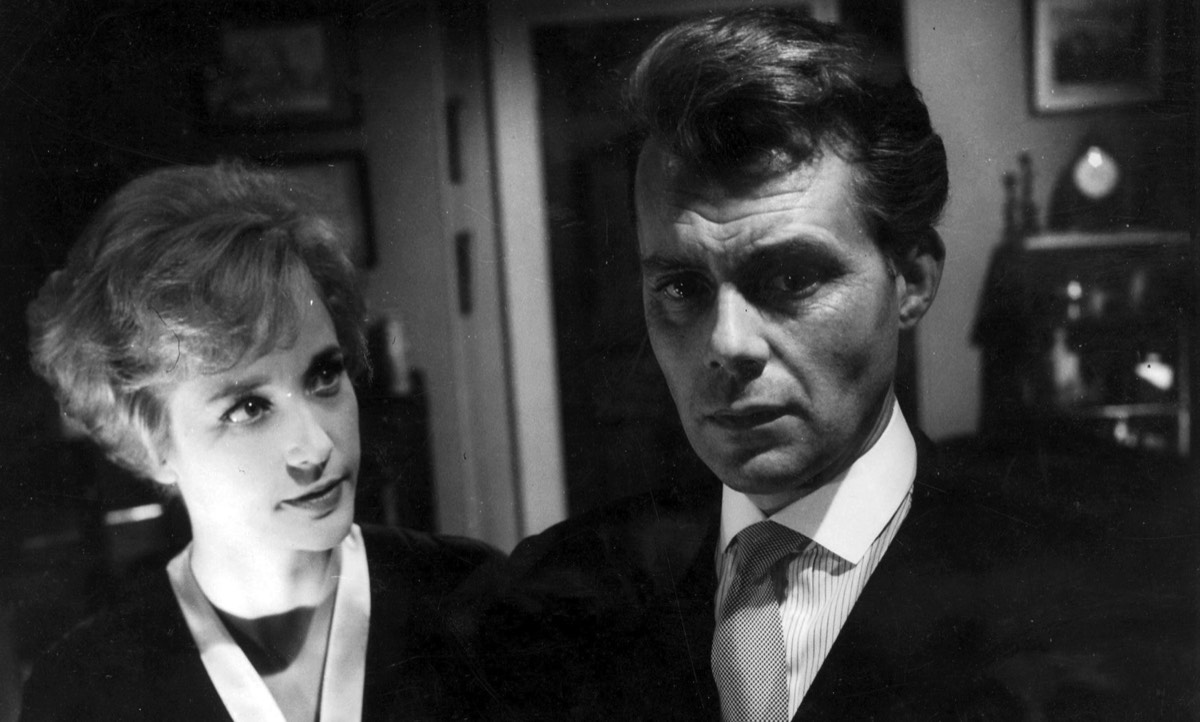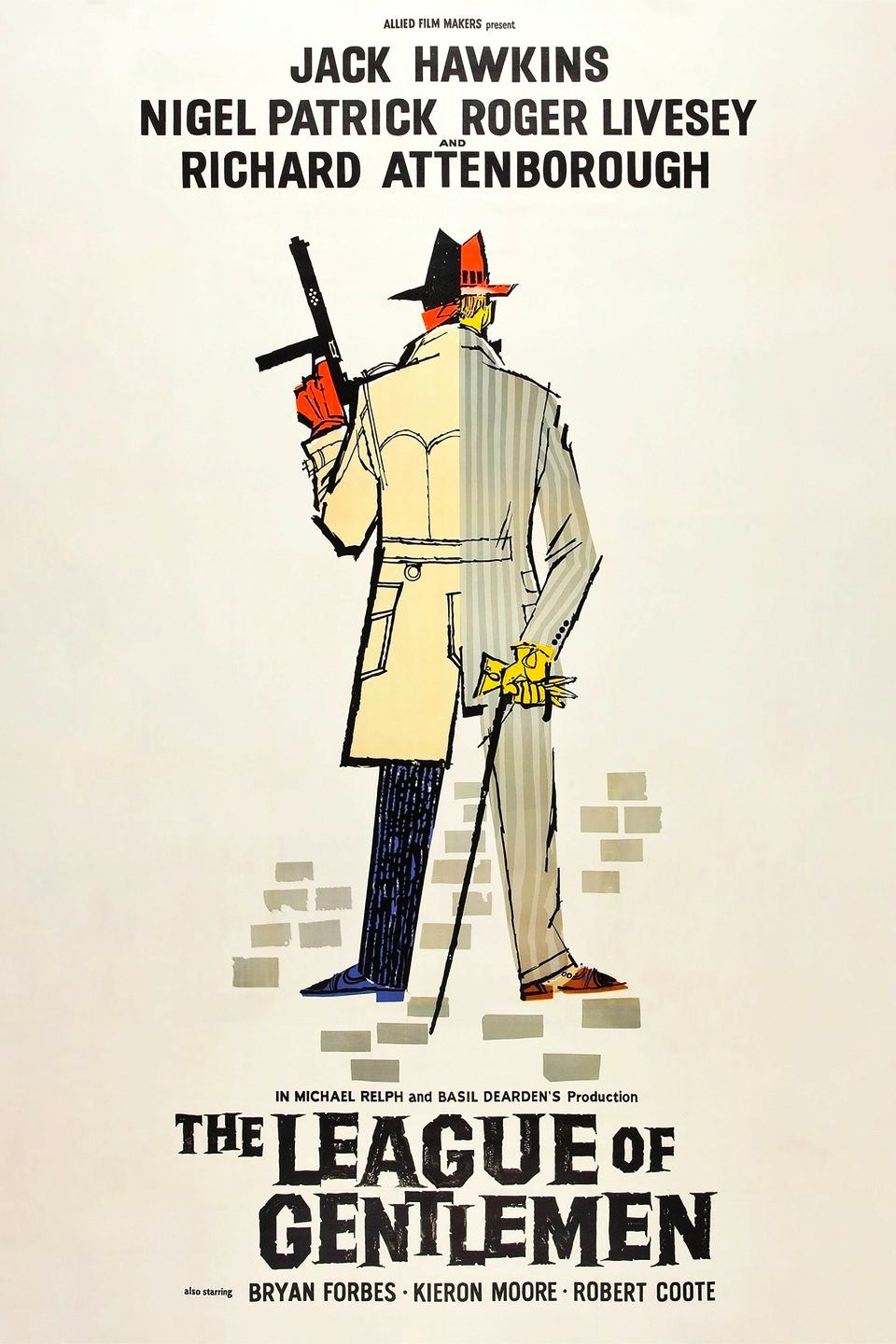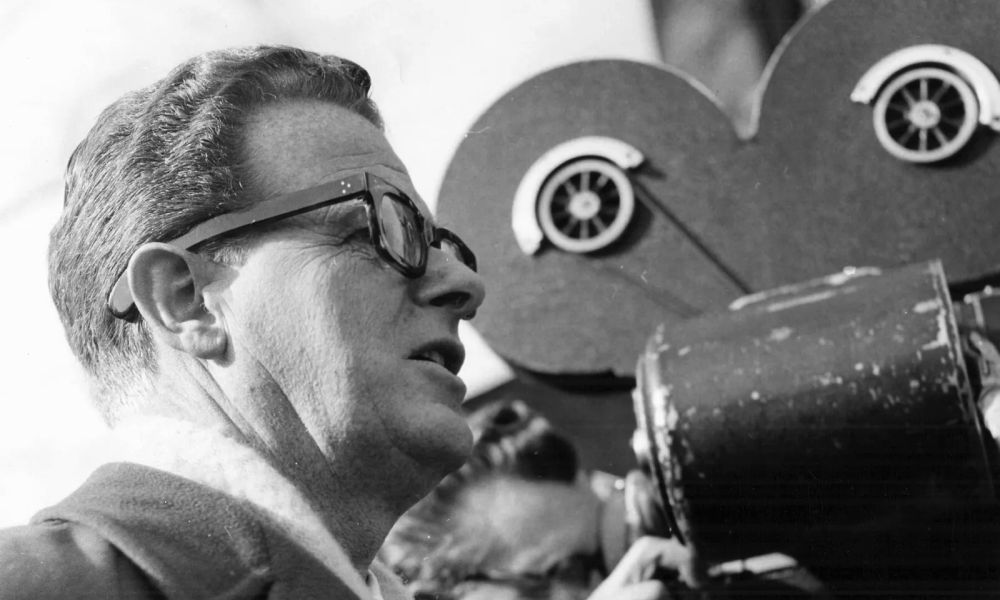"Basil Dearden is, par excellence, the journeyman-director of British cinema, standing in much the same relation to Ealing (the studio for which he directed the greater part of his output) as, say, Michael Curtiz did to Warner Brothers… Dearden was the complete professional, unfailingly competent and meticulous; his films were never less than thoroughly well-constructed, and he enjoyed a reputation in the industry for total reliability." - Theresa FitzGerald (International Dictionary of Films and Filmmakers, 2000)
Basil Dearden
Director / Screenwriter
(1911-1971) Born January 1, Westcliffe-on-Sea, Essex, England
(1911-1971) Born January 1, Westcliffe-on-Sea, Essex, England
Key Production Country: UK
Key Genres: Drama, Crime, Thriller, Crime Drama, Comedy, Action, War, Mystery, Spy Film, Adventure, Crime Comedy, Romance
Key Collaborators: Michael Relph (Producer/Production Designer/Screenwriter), Michael Balcon (Producer), John D. Guthridge (Editor), Philip Green (Composer), Dirk Bogarde (Leading Actor), Gordon Dines (Cinematographer), Jim Morahan (Production Designer), Norman Bird (Character Actor), John Clements (Leading Actor), Glynis Johns (Leading Actress), Nigel Patrick (Leading Actor), Richard Attenborough (Leading Actor)
Key Genres: Drama, Crime, Thriller, Crime Drama, Comedy, Action, War, Mystery, Spy Film, Adventure, Crime Comedy, Romance
Key Collaborators: Michael Relph (Producer/Production Designer/Screenwriter), Michael Balcon (Producer), John D. Guthridge (Editor), Philip Green (Composer), Dirk Bogarde (Leading Actor), Gordon Dines (Cinematographer), Jim Morahan (Production Designer), Norman Bird (Character Actor), John Clements (Leading Actor), Glynis Johns (Leading Actress), Nigel Patrick (Leading Actor), Richard Attenborough (Leading Actor)
"A professional, socially conscious director who began his work at a time when British Cinema was happiest forgetting its wartime traumas in a sudsy bathful of melodramatic tosh, Dearden's subtlest film is Frieda (1947), in which he tried to confront Britain's inevitable post-World-War-Two anti-German prejudice - Sapphire (1959), too, was a valiant pitch (in the light of its times) for racial tolerance, and Victim (1961) made a brave stab at reversing middle England's phobic prejudices against homosexuality." - Mario Reading (The Movie Companion, 2006)
"Critical assessments of Dearden's work have generally been less than positive. The breadth, volume and variability of his work has counted against him, and while some critics have grudgingly acknowledged his technical, 'workhorse' professionalism, he has rarely been singled out for critical praise in stylistic, aesthetic or political terms. The critical agenda regarding his work was set in the early 1960s by writers for whom Dearden and Relph's films epitomised the stiltedness of British cinema. More recently, their achievements have been reassessed, their contribution to the Ealing ethos recognised, and their social problem films - particularly Victim and Sapphire - valued more highly. As film studies grope beyond auteurism towards a greater recognition of the importance of collaboration and versatility, the contribution of Basil Dearden and his collaborator Michael Relph might be more generously acknowledged." - Tim O'Sullivan (BFI Screen Online)

Victim (1961)
"After acting in repertory and on tour in the USA, Dearden stage-managed for Basil Dean for five years and went to work at Ealing in 1937… In the Fifties, working mostly in collaboration with Michael Relph, he turned his mind to social-problem films - tackling such issues as race-relations (Sapphire) and homosexuality (Victim) - but his approach, though liberal, was timid and sober. Dearden was altogether happier with a crime drama like The Blue Lamp or a gentle comedy like The Smallest Show on Earth, while Khartoum is a worthy adventure film." - The Illustrated Who's Who of the Cinema, 1983
"After mastering the mix of comedy, suspense, and horror that helped define the golden age of British cinema, Basil Dearden (along with his producing partner Michael Relph) left the legendary Ealing Studios and struck out on his own. In the late fifties and early sixties, he created a series of gripping, groundbreaking, even controversial films that dealt with racism, homophobia, and the lingering effects of World War II, noir-tinged dramas that burrowed into corners of London rarely seen on-screen." - The Criterion Collection
"Started at Ealing Studios co-directing three deliciously wacky Will Hay comedies (1941-1943). His own films, generally produced and sometimes co-directed by Michael Relph, are ponderous, well-intentioned dramas with a social message, apart from a couple of minor comedies, The Smallest Show on Earth (1957) and The League of Gentlemen (1960)." - Ronald Bergan (A-Z of Movie Directors, 1983)
"Capable, intelligent filmmaker who co-directed his first films with English comedian Will Hay. Best known for his collaborations after the late 1940s with producer-writer Michael Relph, some of which embrace controversial subject matter ranging from race relations (the intriguing murder mystery Sapphire, 1959) to the blackmailing of homosexuals (the landmark Victim, 1961). Also a skillful handler of big action scenes (Khartoum, 1966) and zany comedy (The Smallest Show on Earth, 1957)." - Turner Classic Movies
Selected Filmography
{{row.titlelong}}
"Fan Club"
These film critics/filmmakers have, on multiple occasions, selected this director’s work within film ballots/lists that they have submitted.
These film critics/filmmakers have, on multiple occasions, selected this director’s work within film ballots/lists that they have submitted.


